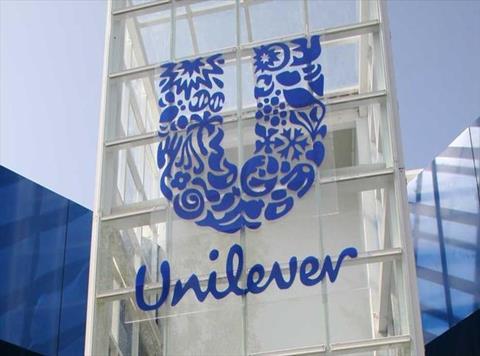
Top story
Unilever has posted stronger than expected second quarter underlying sales growth of 5%, but warned mounting cost inflation will hit margin growth.
In the three months to the end of June, Unilever reported underlying sales growth of 5%, driven by 3.3% underlying volume growth and 1.6% price growth.
That marked a marginal slowdown on the first quarter’s underlying sales growth of 5.7% to take first half underlying sales growth to 5.4% for the six month period, with volumes up 4% and price up 1.3%.
Total turnover was up a more modest 0.3% to €25.8bn as a 1.4% positive impact from acquisitions was mitigated by a 6.1% negative impact from currency movements.
Unilever said The North America and Europe markets declined in the second quarter as it lapped the surge in demand for in-home food and hygiene products in the same period of 2020.
However, normalisation continued in China, albeit below pre-Covid levels, and although renewed restrictions in India impacted the market in the second quarter, they were less severe than in the same period last year
In total for the first half, underlying sales growth in developed markets was 2.2% and emerging markets was 7.2%.
Underlying sales in Europe in the first half grew 1.1% with volume of 2.2% and negative pricing of 1.1%. Volume growth was led by a recovery in out of home ice cream in the second quarter, particularly in Italy and Spain, as the channel started to re-open. The UK and Germany sales declined as it lapped a spike in growth in the second quarter of 2020, while price declined and it lapped a period of lower promotional intensity in the second quarter in some markets.
Underlying sales growth in North America was 2.6%, with USG in Lantin America of 9.5%.
On a category basis beauty and personal care underlying sales grew 3.3% with 1.8% from volume and 1.4% from price, with an acceleration to 4.2% underlying sales growth in the second quarter, helped by increased personal care consumption occasions as living restrictions were eased in some markets.
Home Care underlying sales grew 4.5% with 4.8% from volume and negative price of 0.3% as prices declined as it lapped a period of lower promotions and the impact of input costs was more muted.
Foods and Refreshment underlying sales grew 8.1% with 5.8% from volume and 2.1% from price.
Ice cream sales grew across both in home and out of home products, with double digit performances in Turkey, China and India. Out of home ice cream in Europe grew double digit as living restrictions began to ease, although sales have not returned to pre-Covid-19 levels.
Food solutions grew double digit. Sales in China were above pre-Covid-19 levels, however in most other markets turnover has not yet recovered to 2019 levels as out of home channel restrictions remained in place. In-home foods grew low single digit even as it lapped a spike in demand in the prior year. Knorr and Hellmanns’s grew double digit led by volume.
Despite the overall sales growth, underlying operating margin declined by 100bps to 18.8%.
Unilever said that after conserving spend at the peak of the global pandemic in the prior year, it has stepped up investment in its brands and marketing campaigns, increasing spend by 80bps.
Gross margin was 60bps lower, impacted by an increase in raw material, packaging and distribution costs globally.
As a result of increasing cost pressures, Unilever warned that unederlying operating margins for the full year are likely to be flat year-on-year despite underlying growth being on target.
CEO Alan Jope commented: “”Unilever has delivered a strong first half, with underlying sales growth of 5.4% driven by our continued focus on operational excellence.
“We are making good progress against the strategic choices outlined earlier this year, including the development of our portfolio into high growth spaces. Prestige Beauty and Functional Nutrition grew strongly and we recently announced the acquisition of digitally-native skin care brand Paula’s Choice. The operational separation of our Tea business is substantially complete. Our ecommerce business grew 50% and the channel now represents 11% of sales.”
“Competitive growth is our priority, and we are confident that we will deliver underlying sales growth in 2021 well within our multi-year framework of 3-5%, despite more challenging comparators in the second half. We have seen further cost inflation emerge through the second quarter. Cost volatility and the timing of landing price actions create a higher than normal range of likely year end margin outcomes.”
Unilever shares have dropped 4.4% to 4,112.5p on concern over margin guidance.
Morning update
Morrisons shareholders will vote on the £6.3bn private equity bid to buy the supermarket on 16 August, according to the scheme document Morrisons has issued this morning outlining the terms of the deal.
Morrisons will hold a general meeting on that date and, if approved, intends for 25 August to be its last day of trading on the stock market.
The Morrisons board has recommended shareholers accept the terms of the £6.3bn offer from a consortium led by Fortress Investments of 252p per share and a special dividend of 2p per share.
In a further update this morning, Morrisons said the company and Fortress have engaged in discussions with the trustees of the Morrisons and Safeway pension schemes following the announcement of the bid.
Fortress has confirmed to Morrisons and the trustees that it “appreciates the importance of the schemes as key stakeholders in the business, and, in the event the Fortress Offer is successful, recognises the need to maintain the strong support currently provided to the schemes and that this requires mitigation to be agreed”.
Morrisons said discussions are continuing with the trustees to agree appropriate mitigation and the trustees have stated their intention to issue their opinion on the Fortress Offer in due course.
Elsewhere, this morning Britvic has reported third quarter revenue of £384.8m, an increase of 22.8% on last year, and with revenue growth in all business units.
Third quarter growth means year-to-date revenue increased by 3.1% to just over £1bn.
The Robinsons maker said it continued to deliver strong GB At-Home performance in Q3, with revenue ahead of last year throughout the quarter.
The easing of lockdown restrictions in the UK also led to a significantly improved performance in the out-of-home channel and benefited on-the-go consumption.
It said performance was supported by trade restocking ahead of reopening, as well as continued strong consumer demand for its brands. The reopening of indoor hospitality in the UK in May enabled most outlets to open, albeit with reduced capacity due to continued social distancing measures.
Elsewhere, revenue grew in the at-home channel in Brazil, France, and Ireland. Double-digit revenue growth continued in Brazil, while the recovery of the out-of-home channel in Ireland lags the UK, reflecting the different paths out of lockdown.
Overall, while its product and pack mix has improved in the quarter, it has not yet returned to pre-pandemic levels.
However, anticipates making further progress on price/mix through the rest of this year as it approaches its crucial summer trading period and delivering profit within the range of current market expectations.
CEO Simon Litherland commented: “Performance in Q3 was encouraging, as we benefited from the easing of lockdown restrictions, while also continuing to perform well in the At-Home channel. Some degree of uncertainty remains for now, however, as the full course of the pandemic is still unknown. That said, the momentum we had built up going into the pandemic has stood us in good stead throughout, and I am confident that we will continue to navigate our way through it successfully.
“We remain committed to rebuilding investment behind our portfolio of market-leading brands to ensure we continue to emerge strongly and are well-positioned for the recovery as it evolves. In addition, recent initiatives, such as Rockstar, Plenish and the Aqua Libra Company, give us access to new opportunities and further enhance our medium-term growth prospects. We remain confident that our strategy is fit for the future and will continue to drive growth and create sustainable value for all our stakeholders.”
English wine producer Gusbourne will seek a further £15m in growth funds through an equity raise after posted first half growth of 59% despite continued Covid disruption.
Reporting trading for the six months to 30 June, Gusbourne said net revenues are expected to be up by 59% to £1.41m, driven by further strong growth in sales from direct to consumer channels, which more than doubled year-on-year.
DTC sales for this period are expected to represent 30% (22% last year) of net wine revenue.
This growth has been supported by further strong online sales growth and increased visitor numbers at its cellar door facilities in Kent.
UK Trade sales have rebounded sharply from their previous decline in 2020 and are expected to represent 45% of net wine revenue for the half year.
Following this sales uplift and “in line with our previously stated intentions”, the company has decided to explore an equity fundraise of up to £15m to support further revenue growth and brand development across all distribution channels (DTC, UK Trade and International).
The funds will also be used to increase operational efficiencies and to support planned ongoing business growth in the medium to longer term.
These investment plans will focus on further supporting strong growth in DTC sales in particular, both online, and also offline at cellar door operations at the company’s vineyards in Kent and Sussex.
“The Company believes a combination of online and offline engagement with customers is an important way of growing revenues whilst ensuring that the company maintains and develops the luxury status that the Gusbourne brand of vintage wines represents,” it stated.
On the markets this morning, the FTSE 100 has opened flat at 6,996.9pts.
Early risers include WH Smith, up 3.1% to 1,665p, SSP Group, up 2.7% to 247p and Marston’s, up 2.3% to 85.4p.
Fallers, in addition to Unilever, include Reckitt Benckiser, down 1.5% to 6,266p, Premier Foods, down 1% to 104.6p and Diageo, down 0.9% to 3,435p.
Yesterday in the City
The FTSE 100 continued its strong rebound from Monday’s losses yesterday, rising 1.5% to 6,998.2pts to record its strongest single day for five months and almost wipe out Monday’s fall.
Those stocks reliant of a rebound of travel and food-to-go that had suffered on Monday, led yesterday’s rebound.
SSP Group was up 7.2% yesterday to 240.6p, WH Smith was up 6.6% to 1,614.5p, Compass Group rose 5.6% to 1,492p, Greencore was up 5.4% to 123.8p, Marks & Spencer, up 5.4% to 138.6p, Associated British Foods up, 4.4% to 2,085p and C&C Group, up 4.3% to 219p.
Other risers included Deliveroo, up 4.9% to 314.3p, McBride, up 4.7% to 89p, McColl’s up 4% to 36.4p and Ocado, up 3.2% to 1,786.5p.
The day’s few fallers included Bakkavor, down 3.1% to 131.6p, Hilton Food Group, down 2.4% to 1,080p, Carr’s Group, down 1.6% to 149.5p, Hotel Chocolat, down 1.4% to 365p, FeverTree, down 1.2% to 2,245p and Kerry Group, down 1.1% to €118.70.







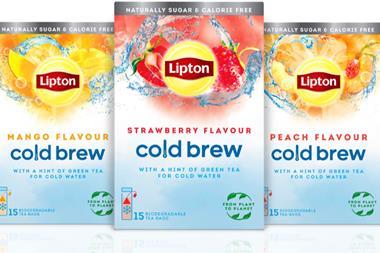
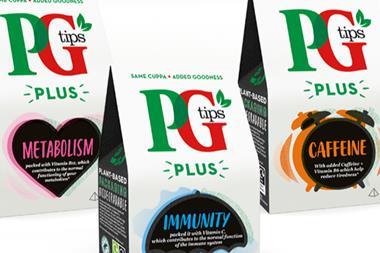
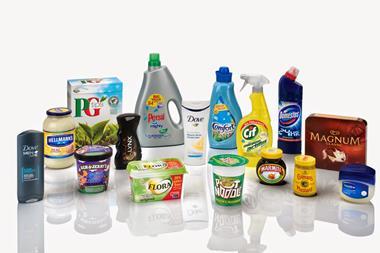
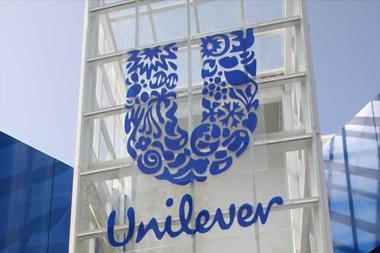
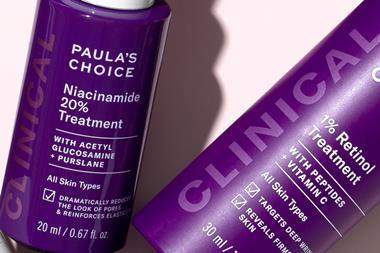
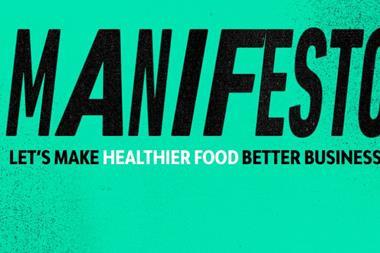






No comments yet